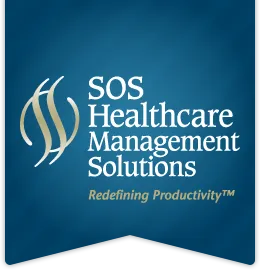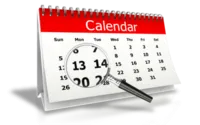
Dad: “Oh, c’mon…you remember that actor! Uh…darn it…whatshisname? He was in the movie, um…hmm, what the heck was the name of that movie? You know the one about the boat…and the water… He was the guy with the hair and the glasses and…”
Me: “No, dad…I don’t know who you are talking about! If you can think of the name of the movie…maybe I can help you remember.”
Dad: Yes, I know it…wait…it’s right on the tip of my tongue. It was, um…well, ok! It was the movie with whatshername, the leading lady…you know, the one that used to play that young girl on Broadway...”
And so it went. I used to make fun of Dad; tease him about his age until I realized I’m suddenly starting to sound like him and wonder what I can do to prevent those same forgetful clouds from taking residence in my brain. Has this ever happened to you? You meet one of your patients outside the office and of course when you see them, you KNOW who they are, but their name temporarily escapes you. As they walk up to greet you, they confidently say, “Hello, Dr. Sweetfeet!” and although your brain goes into overdrive trying to search for a more personal response, the best you can do is, “well, hi there…nice to see you.” How about in your office? Have you ever wondered if you could remember your patient’s name on the other side of the door, if their chart was not there to conveniently remind you? Patients love it when we can remember their names – it makes them feel special. So, what can we do to positively prompt our memories? Maybe these easy tricks can help…
- When you are first introduced to someone, avoid distractions and focus on the introduction. That means actually listening to and paying attention to the person’s name when it is said and not what is concurrently going on around you. Why are we so easily distracted?
- Once you hear it, repeat their name as often as possible…especially when you are first introduced to them. Repetition is your memory’s best friend. “Welcome to our practice, Jay.” “How long have you had that pain in your left foot, Jay?” The more your say it, the easier it will be to remember.
- Writing it down is another way to help you remember, so actually writing their name in their chart, once maybe twice; will also help cement the name in your mind.
- Mnemonics is a memory tool that relies on association and it really works! Is there something in particular about that person’s name that you can automatically link to something? For example, perhaps the diamond on Lucy’s finger made you think of the Beatle song… “Lucy in the Sky with Diamonds?”
- How about rhyming? “I-2-3…Nice to meet you, Lee”, could be challenging for all you would-be poets out there!
- Why can you remember that ROY J. BIV stands for all the colors of the rainbow? Again, because you can make a connection with each letter to each color. The same can work when you associate the letters in your patient’s name, e.g., Lynn might stand for L ove Y our N ew N ame!
- “A picture is worth a thousand words”…Maybe it will help remember Mrs. Dorothy Whitestone by imagining Dorothy (of the Wizard of Oz) walking on the beach picking up all the white stones. It’s fun trying to link a picture to their names and create your own image. Every time you see Mrs. Whitestone, the connection will allow that same image to re-appear.
- If you know someone else by that same name, try to imagine the two of them standing together in front of you. George Black…meet Uncle George. They will forever be associated with each other in your mind.
So no more,” whatsherface” or “whatshisname” for you! From now on, remembering your patient’s names will be as simple as remembering your own, right?...um…I’m sorry, what did you say your name was again?




